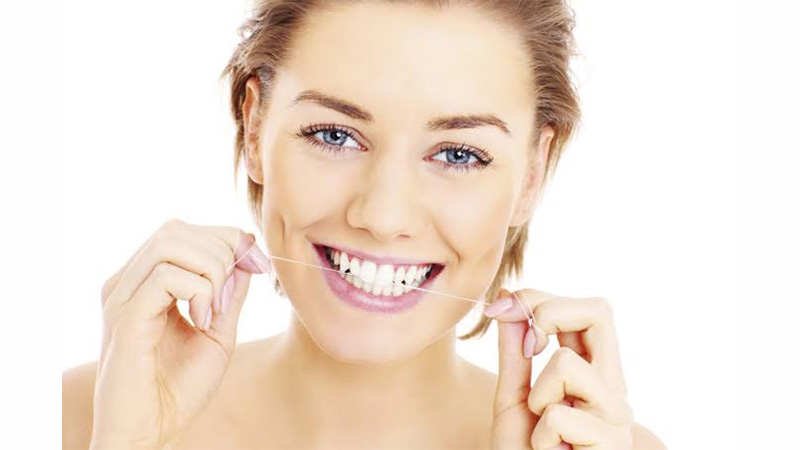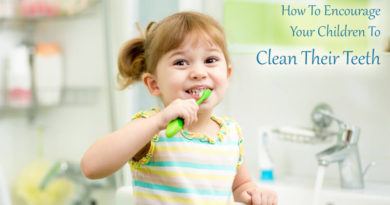A Refresher Course for Healthy Teeth
It’s no surprise that taking care of your teeth is an essential part of oral hygiene and should never be neglected. Not only does it affect our overall well being, but who doesn’t want a sparkling, nice smile?
However, while this is true, many of us can hold our hands up and say that our dental habits are an area of lives that needs improvement. Our teeth need to stay healthy for us to live free of tooth related troubles such as dental cavities and gum disease.

In order to instill good oral habits, we have compiled 6 ways to keep your teeth healthy. Let’s take a look here.
1. See Your Dentist at Least Twice a Year
The first tip is to keep up with your dental visits each and every year. You want to check in with your dentist at least twice a year. Dental offices offer a wide variety of services which means whatever dental issue you’re experiencing, they’ll offer a solution. Their professional expertise can give you peace of mind. They will be on the lookout for cavities, any abnormalities, and potential issues and risks to your oral hygiene and overall well being.
2. Brush Before Bed
How many of us either forget to brush our teeth or skip it altogether before going to sleep? We think of brushing as a chore rather than a necessity. The general recommendation is to brush your pearly whites twice a day. Brushing your teeth at bedtime is crucial as you remove the buildup of plaque, germs, and bacteria that have accumulated in your mouth throughout your day. So, don’t forget to brush them before hitting the sack! And if you’re looking to get whiter teeth, consider avon dentist for some treatment options.
3. Brush Teeth The Right Way
 You have probably heard this one time and time again, but brushing your teeth properly is one of the most effective ways to keeping a healthy smile. Using a fluoride toothpaste is highly recommended as it helps prevent tooth decay and provides a protective barrier for your teeth.
You have probably heard this one time and time again, but brushing your teeth properly is one of the most effective ways to keeping a healthy smile. Using a fluoride toothpaste is highly recommended as it helps prevent tooth decay and provides a protective barrier for your teeth.
All it takes is 2 minutes of your day (twice a day) to brush them. Be sure to brush in a circular motion and don’t forget your tongue! Doing this before you go to sleep every night will help prevent plaque buildup which can lead to gingivitis (early gum disease).
4. Eliminate Bad Breath
Plaque can find its way on your tongue, which can lead to bad breath. Therefore, you want to brush your tongue gently, your gums, and the roof of your mouth. Do this twice a day and follow it up with some mouthwash (don’t need to use mouthwash every single day).
Mouthwash is advised because it promotes the reduction of acid in the mouth, remineralizing the teeth and cleaning them in the hard-to-reach areas. Consulting with your dental physician is a good idea to obtain advice on which mouthwash is best for you. Factors such as age and teeth sensitivity also a play part in the determination of the mouthwash brand.
5. Floss Every Day
Now, you’re probably thinking that it is hard enough to brush your teeth twice a day let alone floss them! Flossing removes food stuck in teeth and is essential to cleaning your smile. It is recommended that you do this once a day. With the help of dental flossers, the process has become easier and less fiddly.
6. Focus on your diet
Drinking plenty of water to flush the sticky and acidic foods down and eating fruits and vegetables are equally important when caring for your smile. They contain vitamins and minerals which are essential to a healthy body and bones, which includes your teeth. So, limit the sugary snacks which are the instigators of tooth cavities and boost the healthy food groups which won’t cause you problems with your teeth.
Eating good foods for your teeth helps you maintain your teeth and gums’ health, which is especially important if you have a lot of staining. If you have sensitive teeth or chipped teeth, you should also avoid eating foods that are hard to chew.
For instance, you can avoid eating hard candies because they can cause your teeth to become sensitive. Chewing your food well before swallowing it will also ensure that you don’t end up swallowing the food’s bitter taste. Drinking water is also recommended.
There are some foods that have been recommended to avoid as well. You should try to avoid drinking tea and coffee as they’re known to cause dental problems. And, if you have yellow teeth, you should avoid eating or drinking green, orange, and yellow-colored fruits.
7. Don’t Use Your Teeth For Other Things
When you use your teeth for opening bottles, plastics, or cans, there’s a tendency that you’ll lose your teeth. Take note that your teeth should only be used in chewing food. While the teeth are strong, they can lose structural integrity when used in non-food items.
8. Teeth Whitening
There are teeth whitening gels that are available in the market that can be applied to your teeth to remove stains and then whitening them. However, make sure you use these products only in the areas where you want to have white teeth. Teeth whitening gels are usually expensive, so you should first consult your dentist first.
9. Get Expert Advice From Your Dentist
When it comes to dental health, your dentist is the best advisor. The frequency of dental visits differs from one person to another. Tooth-decay-vulnerable individuals may need to see their dentists more frequently than those with healthy oral health. Generally, it’s essential to visit your dentist every six months.
If you experience tooth decay, oral pain, or any oral issue, make sure to have an appointment as soon as possible. You don’t want to compromise your dental health by procrastinating.
Use this refresher course to analyze your dental routine and make any changes if necessary. Your body will appreciate it!



